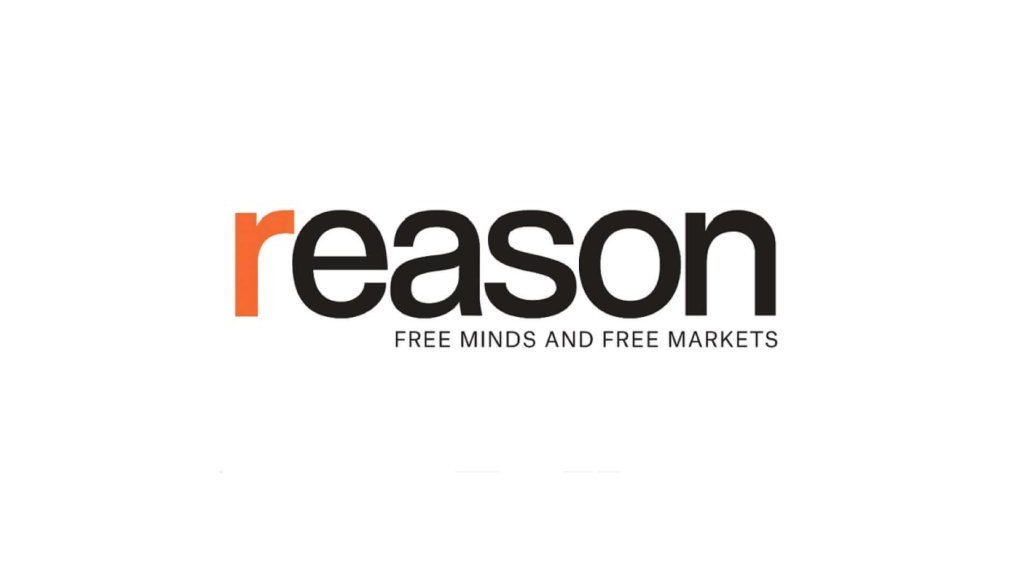Trump’s Longtime Obsession With Trade Deficits Suggests His Tariffs Won’t End Soon
The “reciprocal” tariffs that President Donald Trump announced this week are based on a flagrant fallacy: the idea that there is something inherently suspicious about trade deficits. Unlike many of the positions that Trump has adopted as a politician, this one seems heartfelt and long predates his presidential campaigns. His comments on the subject during the last four decades reflect an unshakable belief that international trade is “fair” only when the dollar value of imports from any given country happens to match the dollar value of U.S. exports to that country.
Trump’s long history of economic illiteracy suggests he is determined to pursue this trade war, which features import taxes that are much steeper and far broader than the ones he imposed during his first term, no matter how much pain it inflicts on American consumers and businesses. If there is any cause for hope on that score, it is Trump’s similarly long-standing eagerness to look like a winner by making shrewd deals. The tension between those two instincts explains why Trump contradicts himself by presenting his tariffs as both a short-term bargaining tactic and a long-term strategy for raising revenue and boosting the U.S. economy.
When Trump published his first book, The Art of the Deal, in 1987, he saw Japan as America’s main economic nemesis. “For decades now,” he complained, “they have become wealthier in large measure by screwing the United States with a self-serving trade policy that our political leaders have never been able to fully understand or counteract.” Although China has replaced Japan as the primary threat, Trump is still believes that other countries “become wealthier” by “screwing the United States,” the grievance at the heart of his new tariffs.
Thirteen years later in The America We Deserve, Trump explained the logic underlying that conviction. “You only have to look at our trade deficit to see that we are being taken to the cleaners by our trading partners,” he wrote. “We’ve fallen into the habit of mistaking the easy availability of cheap, sweatshop-produced product for solid and sustainable economic stability. America has been ripped off by virtually every country we do business with.”
Voluntary economic exchanges, whether or not they cross borders, manifestly benefit both parties; otherwise, they would not happen. But as Trump sees it, trade is a zero-sum game in which the rules are rigged against the United States.
Although Trump presented trade deficits as conclusive evidence of chicanery in The America We Deserve, he did not offer tariffs as a solution. The word does not even appear in the book—a pretty striking omission for someone who would later describe himself as “Tariff Man” and declare that “tariffs are the greatest thing ever invented.” Back then, Trump thought the best way to reduce “our trade deficit” was “tougher negotiations, not protectionist walls around America.”
Those negotiations, Trump said, would aim to eliminate trade barriers erected by foreign governments. “We need to ensure that foreign markets in Japan and France and Germany and Saudi Arabia are as open to our products as our country is to theirs,” he wrote. “Our long-term interests require that we cut better deals with our world trading partners….We need to renegotiate fair trade agreements.”
As Trump saw it, this was his forté as a consummate dealmaker. “I would put the right people in charge of negotiation and would get involved myself,” he said. “If President Trump does the negotiating, we’ll get a better deal for American workers and their families, and our economy will not be as vuln
Article from Reason.com

The Reason Magazine website is a go-to destination for libertarians seeking cogent analysis, investigative reporting, and thought-provoking commentary. Championing the principles of individual freedom, limited government, and free markets, the site offers a diverse range of articles, videos, and podcasts that challenge conventional wisdom and advocate for libertarian solutions. Whether you’re interested in politics, culture, or technology, Reason provides a unique lens that prioritizes liberty and rational discourse. It’s an essential resource for those who value critical thinking and nuanced debate in the pursuit of a freer society.




